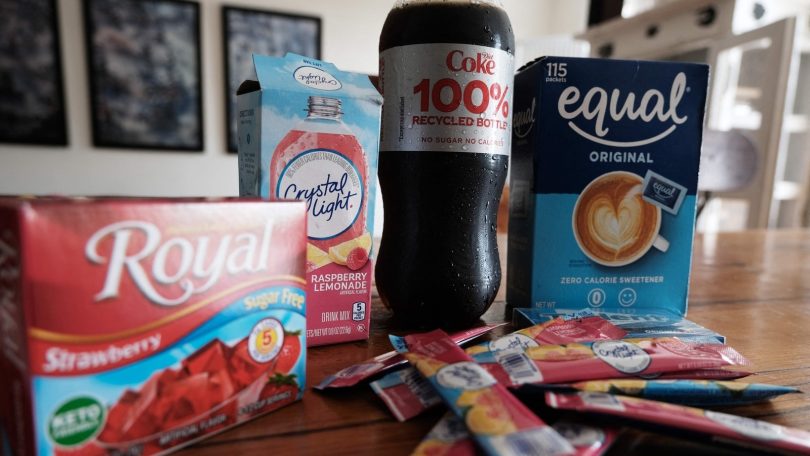[ad_1]
Aspartame is an artificial sweetener used as a sugar substitute in a wide range of food and beverage products as it is a low-calorie sweetener, approximately 200 times sweeter than sucrose (table sugar), making it an attractive option for those looking to reduce their calorie intake or manage diabetes. Aspartame is composed of two amino acids – aspartic acid and phenylalanine linked together and these components are naturally found in various foods and are metabolised by the body during digestion however, aspartame is synthesised through a chemical process and is considered an artificial sweetener.

It is approved for use in various food and beverage products including diet sodas or diet drinks, chewing gum, gelatin, ice cream, dairy products such as yogurt, breakfast cereal, toothpaste, medications such as cough drops and chewable vitamins other low-calorie or sugar-free items but while aspartame is considered safe for the majority of people, it is not recommended for individuals with phenylketonuria (PKU), a rare genetic disorder that inhibits the breakdown of phenylalanine. Recent assessments of the health impacts of the non-sugar sweetener aspartame released by the International Agency for Research on Cancer (IARC), the World Health Organization (WHO) and the Food and Agriculture Organization (FAO) Joint Expert Committee on Food Additives (JECFA) cited “limited evidence” for carcinogenicity in humans while IARC classified aspartame as possibly carcinogenic to humans (IARC Group 2B) and JECFA reaffirmed the acceptable daily intake of 40 mg/kg body weight.
Dr Pooja Babbar, Consultant, Medical Oncology at CK Birla Hospital in Gurugram, shared, “Artificial sweetener such as aspartame is regulated by FDA in the US. FDA has set the ‘Acceptable Daily Intake’ limit for aspartame at 50 mg per kg of body weight per day, whereas European Union has recommended a slightly lower ‘Acceptable Daily Intake’ (ADI) of 40 mg per kg per day. So, to consider aspartame as a potential carcinogenic, we also need to look at the amount an individual intake daily. If the amount is more than ADI of 40 to 50 mg per kg per day, then definitely it is carcinogenic to the human body.”
She elaborated, “To give you an idea, a 60 kg adult would have to consume at least 12 cans of diet soft drinks every day to do that. Aspartame is linked with one problem, especially for those who have ‘Phenylketonuria’. It’s a genetic disorder in which the body cannot break down phenylalanine. It is an amino acid found in aspartame and such people need to be cautious that’s why aspartame-containing products carry the warning that phenylketonuric contains phenylalanine and such people should avoid it.”
People with PKU must avoid phenylalanine-containing products and aspartame is labeled accordingly to alert those individuals. Aspartame has been a subject of controversy and concerns over the years, with some people associating it with adverse health effects so, as with any food additive or sweetener, it is essential to consume aspartame in moderation as part of a balanced diet.
If you have specific health concerns or questions about its use, it is advisable to consult with a healthcare professional.
[ad_2]
Source link








